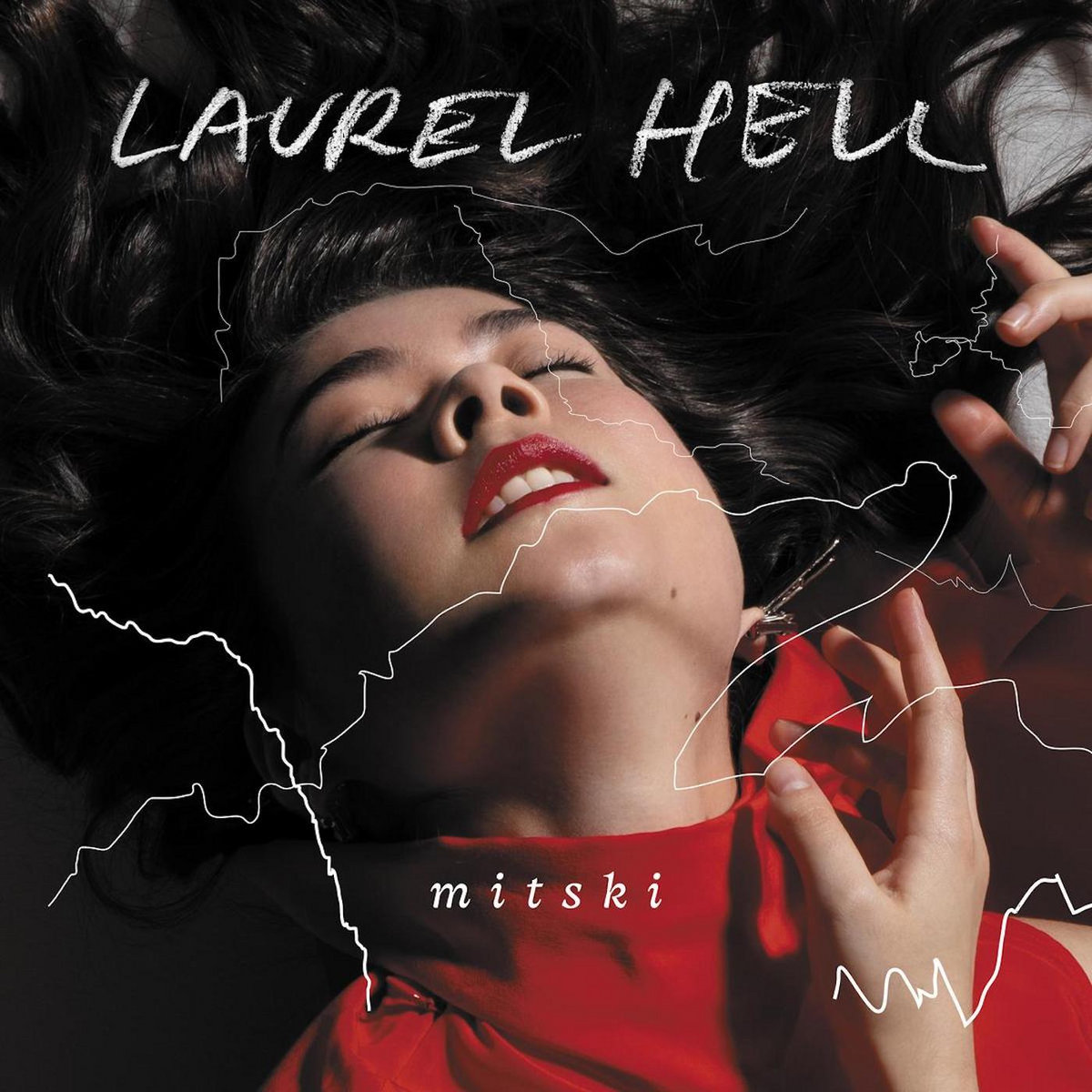Mitski
Laurel Hell
DEAD OCEANS
ABOVE THE CURRENT
At a show in Columbus in early 2019, Mitski made eye-contact with me while singing “Geyser,” and I thought I’d just seen God. I thought: Was this the beginning of some mythical undertaking, the next great rewrite of modern rock? Had her fourth LP, Be the Cowboy, signaled an uptick in dazzling disco and emo pastiche? If Mitski singing “I am loved” repeatedly on “Me and My Husband” was a crystal ball, the answer was yes, as the record occupied the #1 spot on several year-end, best-of lists and her fanbase quickly sprawled into a fandom on par with boy bands and pop-star heavyweights.
But Mitski just as quickly retreated from the spotlight entirely—taking a touring hiatus at the apex of her young career and deleting her social media accounts—as she entered it. At first, it was jarring, but then it quickly made total sense: she’d always flirted with packing things up for good. When The New York Times profiled her half a decade ago, she hinted at vying for whatever happiness could come from the monotony of a job outside the performing arts. And upon her hiatus, much unlike my own repeated threats to leave social media, Mitski’s publicity remained minimal.
So now, Laurel Hell comes on the heels of her long-awaited return to center stage, galvanized by its lead single “Working for the Knife,” a relentless illustration of an aging artist living within the margins of mainstream music’s capitalism, a question pondering what worthiness comes from the payoffs of fame. The songs were written in the same year Be the Cowboy came out, but Laurel Hell acts as its predecessor’s foil, minimizing any filler and cutting to the chase, parsing haunted melodies with even more surrendering lyrics.
On Laurel Hell, she adroitly writes of terminable freedom, as if the personas she embodied four years ago have now caught up with their own mortalities and the cost to live with them. Up until this point, Mitski’s songs, whether exaggerated or confessional, have been parables of toxic intimacy and heroism, navigating autonomous power in the trenches of a gluttonous industry. “Sometimes I think I am free / Until I find I’m back in line again,” Mitski approximates on the arresting “Everyone,” identifying and blasting the inescapable routines of creating; “All the ways you still want me / I haven’t given you what you need,” she atones on “There’s Nothing Left For You” about a romantic disintegration that toes the line of what relationship exists between a performer and their fans.
Be the Cowboy was a fictional mythology about perfection that still left us with an immensely self-critical Mitski, and Laurel Hell is a welcomed retreat to the themes of her first three LPs: heartbreaking, personal accounts of love lost and anti-vanicious self-portraits. There’s a narrative flow between Bury Me at Makeout Creek’s opener “Texas Reznikoff” and Laurel Hell’s “Valentine, Texas,” a pipeline between Puberty 2’s “Your Best American Girl” and Laurel Hell’s “Love Me More” (especially when “If I could, I’d be your little spoon” is juxtaposed with “I could be a new girl / I will be a new girl”). Laurel Hell is a perfect blend of angsty, pre-2018 Mitski and the disco-leaning, stadium-shaking new self she touted four years ago: grandiose and meticulous arrangements, sparse lyricism that’s abandoned any sort of philosophical bloat.
By definition, a laurel is a shrub we use in wreath crowns, but it’s also a contemporary symbol of victory. Upon Be the Cowboy’s release, Mitski quickly became commodified, championed as the next conquering indie star, a catalyst for Gen-Z cowboy idealization, and a personified brand that greatly juxtaposed the half-decade she’d spent preserving a significant underdog anonymity and cultivating consistent critical success. We were there in the crowd four years ago, watching her perfectly choreographed stage routine and wishing the rest of the industry would catch up to it, without considering what an expedited rise to mainstream stardom could do to an artist who has long considered what kind of love awaits her on the other side of performance.
Yet again, Mitski’s given us a winner, but it’s a lover’s quarrel echoing the saturation of celebrity, punctuated by its closer, “That’s Our Lamp,” where she says goodbye to an unnamed lover with an accusation, that they don’t like her like they used to. There are wind gusts of space in between breaths of running synths on the face-melting “The Only Heartbreaker”; on “Should've Been Me,” she sings joyously about cheating in the name of love; “Heat Lightning” turns insomnia into a foxy surrender. These songs sat for three years before she mixed, mastered, and called them a record, yet they remain fresh with each return. A steadfast benchmark for stardom has always been being able to turn in timeless work, but with Laurel Hell, Mitski has delivered a batch of songs that were already timeless before she decided anyone else would ever hear them, with an urgency she created on her own terms.









